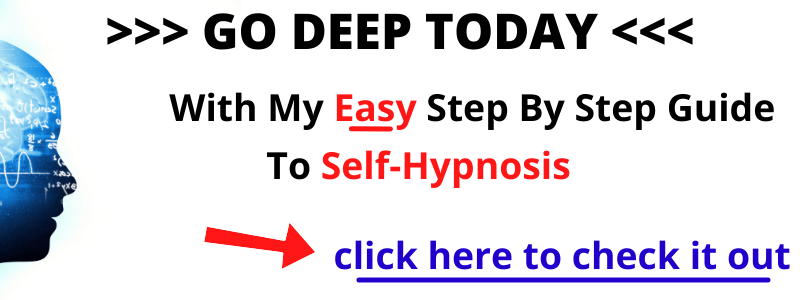Whenever a subject is perceived as difficult or mysterious like hypnosis is, it’s only natural to ask whether anyone can learn it.
So can anyone learn hypnosis? Yes. And no. So long as you have normal learning abilities and social skills, it’s possible to learn to hypnotize others. However, as with all things, some of us can learn it more easily than others. In this article we’ll cover why anyone can learn hypnosis, and what kinds of pre-existing skills make it easier.
Just about anyone can learn hypnosis
Looking in from the outside, hypnosis can appear like it must be difficult and complex to learn. It’s easy to look at the seemingly astonishing feats performed by hypnotists, and think that it’s either magic, natural talent, or impossibly difficult to learn.
While going deep into understanding every nuance of hypnosis is a huge task, learning the basics is extremely easy and can be done in well under a single weekend.
Being able to guide people is a skill that most adults possess to some degree or another. There are a few highly specific conditions that can make this difficult, but realistically, people who have those conditions are unlikely to even think about learning hypnosis.
When we learn to hypnotize others, what we’re learning to do is guide them into a state of hypnosis.
The hypnotist doesn’t really do anything to make the hypnosis happen. All we do is show our hypnosis subject the way.
Because of this, if you’ve ever guided someone, taught someone, or led someone in any way, you already have the core skills required to learn hypnosis.
Naturally, as with all things, there are skills we can have that will make it a lot easier to learn.
Traits that make hypnosis easy to learn
When I first had the idea of hypnotizing others a little over a decade ago, I was already a trained scientist. I’d also been playing with self-hypnosis for a good 20 years at that point.
Both of these have aided me immensely in learning to become a hypnotist.
Being a scientist helps, because I know exactly how to devise experiments to test everything.
In a lot of fields, this doesn’t matter very much. You can often trust what others have said.
Not so in hypnosis. In the early days when I was learning hypnosis, the scientific method was invaluable because there was so much blatantly false information about. It allowed me to filter out the nonsense.
To this day, I still find myself constantly running tests to verify that things are working.
Similarly, one of the vital skills when you want to get good at hypnosis is learning to go into hypnosis as the first step in hypnotizing someone. This means that self-hypnosis is an important skill on the path to mastering hypnosis.
So those are two big skill sets that have helped me enormously.
Do you need them to do hypnosis? Nope.
Let’s have a quick look at what’s involved with hypnosis so that we can see what traits are helpful.
First and foremost, with hypnosis we’re teaching people how to have new experiences. If you love teaching things, and showing people cool things, both will aid you in doing hypnosis.
Hypnosis is the core of all learning, so if you’re strongly driven by curiosity and love learning new things, that will help you in doing hypnosis.
The very first step with any hypnotic induction is always building rapport with your hypnosis subject. If you get on well with people, and can hold conversations with ease, that will aid you immensely in building rapport.
One of the skills that you’ll learn in advanced hypnosis trainings is how to use your voice tone and pausing to modulate and cause hypnosis in your subjects. If you’ve already got those skills, that’s one less thing to learn. By the way, this one is so effective that it’s just about the only thing I usually do when I want to induce hypnosis in others.
A lot of hypnosis involves a deep understanding of how people think and feel. If you understand people, and have empathy, that will aid you greatly in learning hypnosis.
If you’re generally perceived as being agreeable, that in itself is a form of hypnosis induction. Naturally, if you can induce hypnosis without doing anything beyond what you already do, it’s going to help quite a bit.
With hypnosis, how we say and present things is a lot more important than the material itself. If you’re good at being expressive, that helps a lot.
And finally, if you’re generally interested in other people, that too helps a lot with hypnosis.
Now you might be thinking that’s a huge list. It’s possible that you can already do all of those things, in which case you’ll probably make an exceptional hypnotist.
It’s also possible that you can’t.
Either way, don’t worry. Every single thing that I’ve listed can be learnt.
Some of them are easier than others.
Some can be learnt very quickly while others take years.
You don’t need all of them to be good at hypnosis.
Each of them helps. A lot.
But here’s the thing.
You probably already know people that you can talk to.
There are probably people that you’ve had deep conversations with over the course of your life.
If you can do that, you’ve got all you need to get started with hypnosis.
And if you can’t, even those skills can be learnt.
It’s just a matter of applying the necessary time and effort to learn them.
What kind of training suits you?
Regardless of your personality and how you like to learn, there will almost certainly be methods of learning hypnosis that will work for you.
The same learning media exist for hypnosis as for all other things.
Books and online articles
If you’re a scientist, engineer, thinker, or the kind of person who always wonders what else can be done with something, you’ll probably find that books and online articles like this one you’re reading right now are a good place to start.
When stuff’s written down, we can consume it at our own pace, and can easily print it out if we’d like to make notes and add our own thoughts.
Audio courses
I’ve found audio courses to be exceptional when I have a lot of driving to do. They’re also fantastic when carrying out menial tasks that don’t involve much in the way of thought such as polishing the car, cleaning in general, painting, sanding, stocking shelves and a whole host of other activities.
Naturally if you prefer to have course material read to you, you’ll like this option.
Video courses
These are generally the second best option for most people, right after live trainings. They’re also brilliant when you’re learning with a group of friends.
They have the advantage that you can typically play them at 2x speed to save time. And you can easily use visual cues to skip through the content to repeatedly go over material.
Online live trainings
These are like video courses, only with a live trainer on a video call. They can also be brilliant. However, since it’s live, there’s no way to control the playback speed which can make them seem to drag on.
The huge advantage of these is that the trainer’s right there on the call, and is generally willing to answer any questions you might have. You can also sometimes have break-out sessions with other participants to practice the skills you’ve just learnt, and get feedback from others.
In-person trainings
In-person trainings are generally considered to be the best way to learn hypnosis. There are even some hypnotists who claim that it’s the only way. Quite naturally, they’re wrong about that.
The truth is that an in-person training can be an incredible experience. You get to hang out in a room with a bunch of other hypnotists who are usually more than willing to share all their secrets with you.
The trainer also tends to be more accessible since they’re right there in the room, and there’s no fumbling with de-synchronized chat feeds, as sometimes happens with live online trainings.
You usually get to practice every new skill you learn, repeatedly, with a diverse range of people from all walks of life. This helps you to build a broad base.
The huge disadvantage is the cost. In-person trainings typically start at around $1500 for a week of training. And they’re usually in a different town or country. The most recent training I attended cost me over $3000 just for accommodation, flights, and meals.
Which type of training should you choose?
If you’re reading articles online like this one, there’s a good chance that the best place for you personally to start is with articles and books.
Beyond that, when you read the options above, one or more of them probably jumped out at you.
Start with that one.
How long does it take to learn hypnosis?
So anyone can learn hypnosis, and although there are some skills and traits that will help you along, not having those skills won’t prevent you from learning hypnosis.
As you might guess, how long it takes to learn hypnosis depends on a whole host of things.
The quick answer is that most people can learn self-hypnosis in a few hours. Getting good at it takes much longer.
You can read more about self-hypnosis, including a simple way to do it, in my article on instant self-hypnosis.
Once you can do it, self-hypnosis becomes the very first step when hypnotizing others. It’s not required, but it helps enormously since you’re modelling hypnosis for your hypnosis subject.
Most people can learn enough hypnosis to hypnotize someone and get some kind of result in a single weekend. Even when you’re learning from a book.
If you’d like to get started with hypnotizing others, you might enjoy reading my article How to Learn Hypnosis in 7 Easy Steps next.




